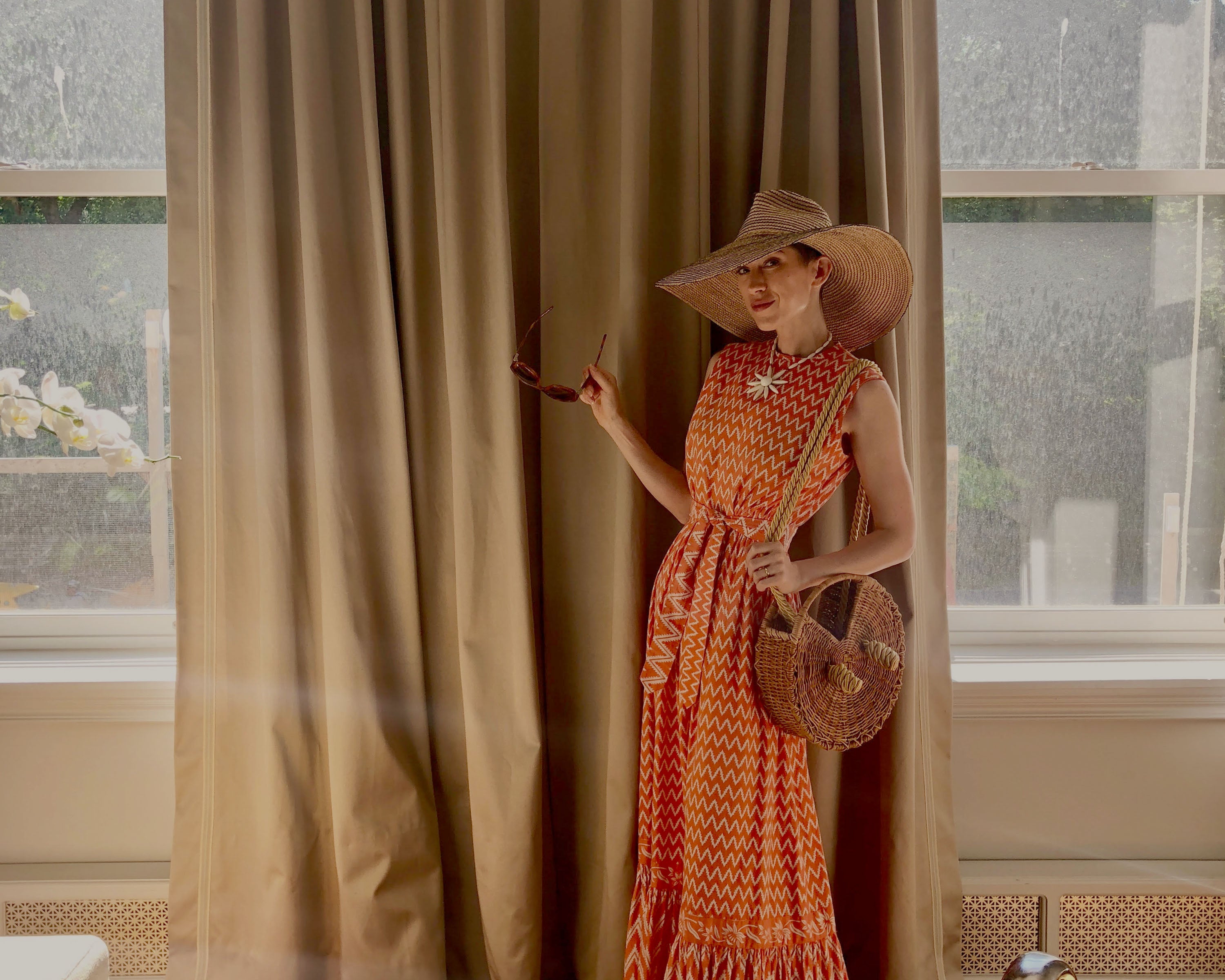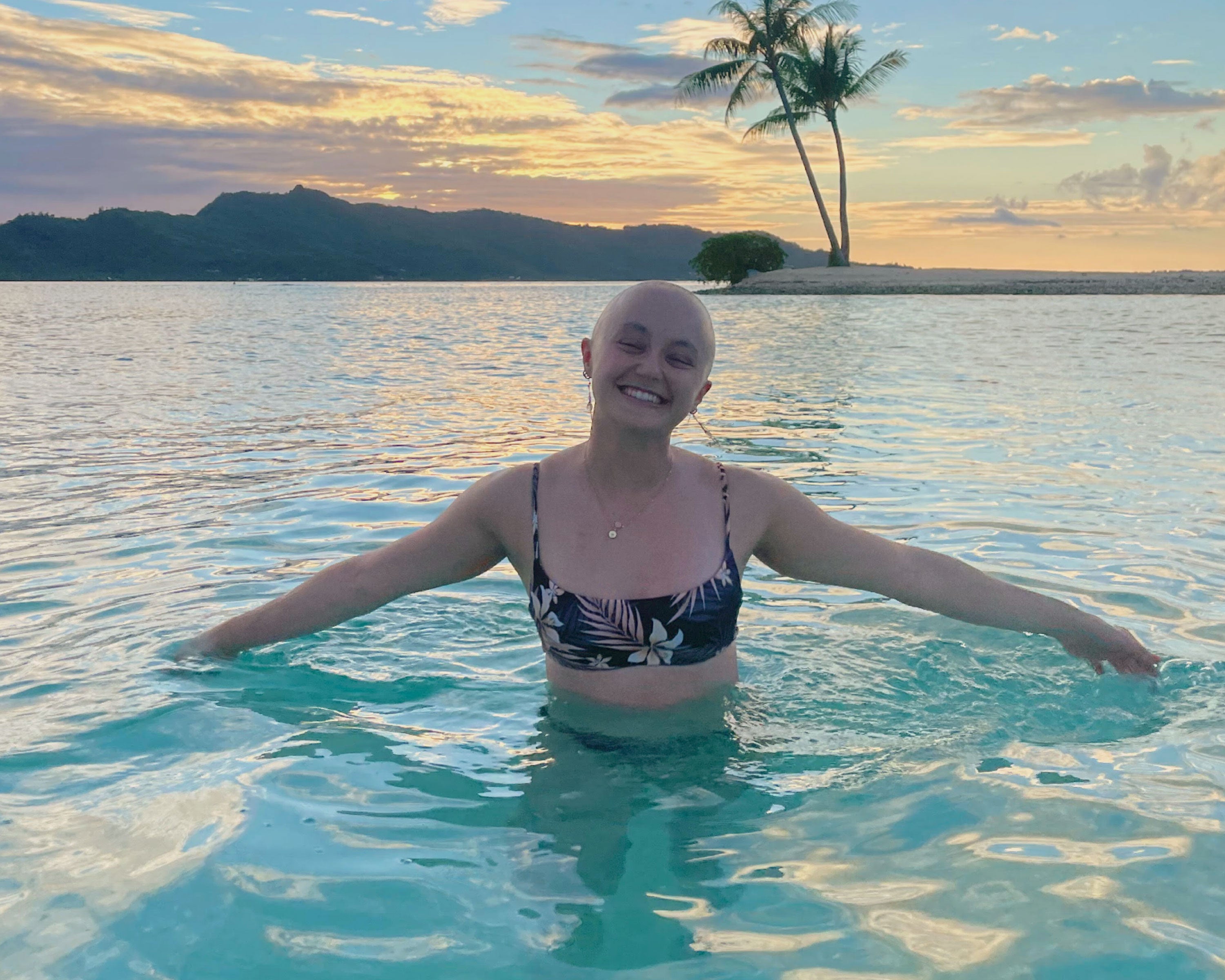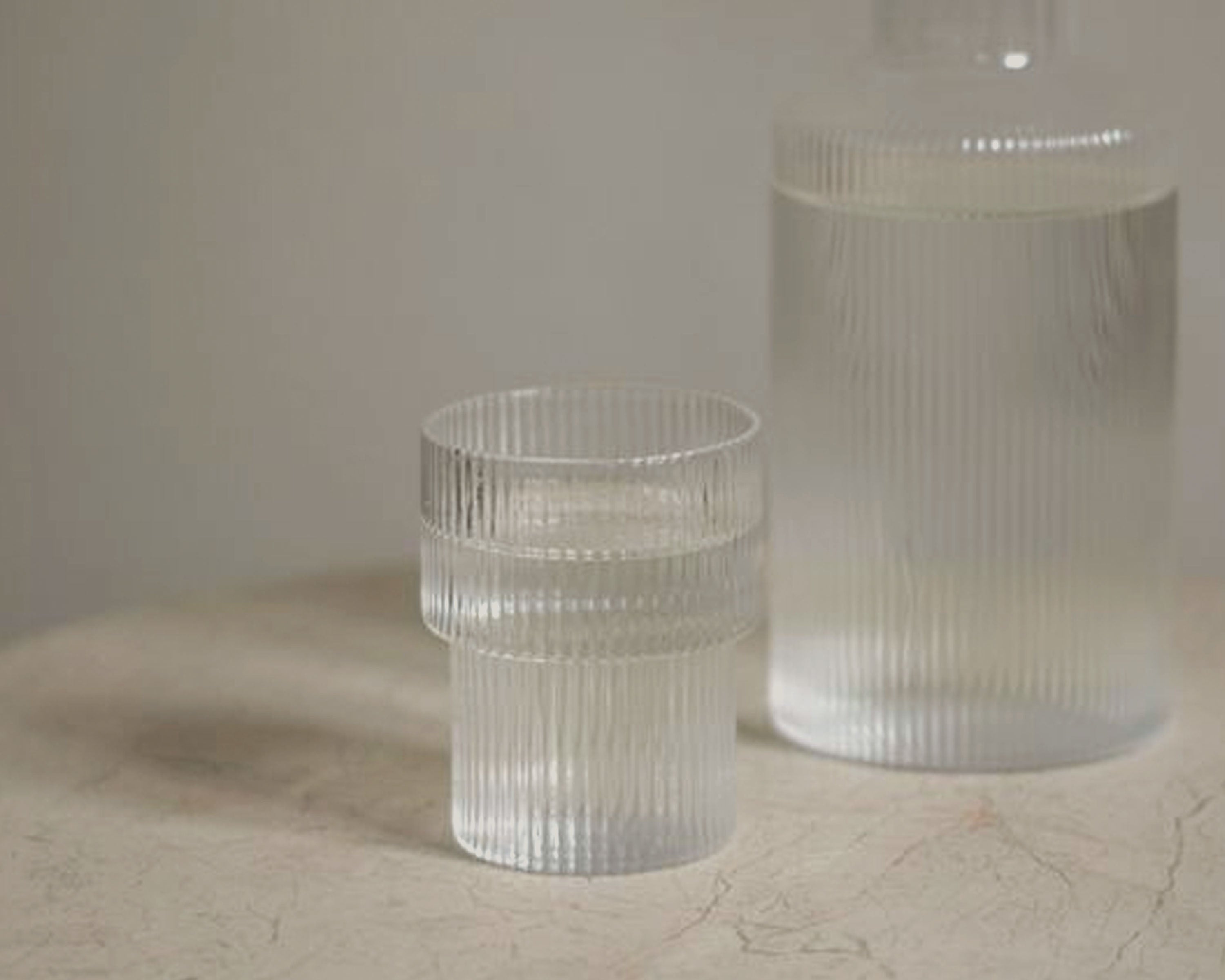Real Talk
How One Woman Broke All the “Rules” of Cancer: “Everyone Deals With It Differently”
By Erin Hazelton
Share
Before my cancer diagnosis in 2018 — stage 2 invasive breast cancer — “getting cancer” wasn’t on my radar. I was thirty-seven, a mother of two, a writer who had just finished grad school, someone who ate a plant-based diet and ran miles and miles around Central Park each week. I had never experienced cancer close up. None of my family or friends had dealt with it. It just wasn’t something I worried about.
As I’ve navigated this journey, I’ve decided that cancer is part of my story, but it is not something that defines who I am. Everyone deals with cancer differently and when you are going through treatment, you get to determine what works for you. Here are some of the ways I dealt with my cancer diagnosis, treatment and cancer’s aftermath:
Choose how you want to open up — and what you want to keep private.
The first few months, I kept quiet about my diagnosis. I told my closest friends, my family and my kids, but I didn’t share much beyond that. Then one day it hit me: if this can happen to me, it can happen to anyone and I’m not doing myself or anyone else any good by pretending otherwise. So I took my Instagram account off private and shared my experience. By using a social media platform, I got to control the narrative. I shared what I wanted. I did not share images of me with a needle in my arm (though I did share one photo in the chemo chair much later, after chemo was behind me). I didn’t want to show the ugly; instead I shared what felt empowering to me. I shared my thoughts, the ways I saw myself growing, and sometimes my frustration and pain. I wanted people to understand that cancer doesn’t always destroy you. It’s a fact of life. You control your narrative and how much you let it take from you. I only let cancer have the bare minimum.
This was my method, but of course others share differently. Some people want to share the process, the hair loss, the scars, and that helps them. For me, these sorts of images are triggering, and I was already ready to explode, so I protected myself from too many visuals that might insight more fear inside of me.
Another “thing” I did at the end of my treatment — after surgery and chemo — when I was preparing to start my six weeks of radiation, was to distract myself from my reality and dress up every day. It was the peak of summer, and my family was in Maine while I stayed in NYC. I said to myself, “I’m going to lose my mind if I don’t give myself something to do.” So every day that I went in for radiation, I put on some elaborate outfit, took a picture in front of my big mirror, and posted it on Instagram. It was like a 6-week countdown, and having people online cheer me on each day really helped me stay positive and get through that last stretch.
Get comfortable asking your doctor, "What are the different options?"
I had residual cancer after chemo, which I found out after surgery. Basically, I didn’t get a full response, or even the expected response, to the chemo I went through. It was a bummer. I thought, “This is it. This cancer is stronger than I am. It’s a matter of time.” But that was me freaking out. I’m three years out and I’m still cancer-free.
Because I had a higher risk of recurrence, I opted to have Lupron shots each month to turn off my ovaries, and took an aromatase inhibitor for the first year or so. But when you turn off all your estrogen, one of the side effects is joint problems. I had a lot of those. It started in my right elbow, then it was my right wrist, and at some point it was my hip, knee, and even my jaw. It hurt to open the door. I couldn't do push-ups anymore. I felt like an eighty-year-old woman living in a thirty-something body. I thought, if this is how I'm going to live, this isn't living. So I asked if I could stop for a while — and my doctor was fine with me taking a break. She switched me to Tamoxifen and I stayed on Lupron a bit longer. But when the joint issues continued, I stopped the Lupron shots for a while. That’s when my joints normalized and I felt thirty-something again.
I’ve tried to get back on Lupron a few times, but right now I feel like Tamoxifen is all I can handle. Of course there’s an element of guilt — I feel like I should just suck up the side effects and give myself a few extra absolute percentage points of protection from recurrence, but I also need to live my life. You need to make these decisions based on what you can tolerate. Your doctor is there to guide you. If she or he feels like you HAVE to do something, they’ll make their argument and you’ll listen. They’ve seen it all. They know what they are talking about and most of them are reasonable. But they can’t read your mind. Talk.
Another situation where I decided to go a little rogue during treatment was during chemo. After your chemotherapy infusions, you are prescribed steroids to help with the nausea. As a clean-eating, Advil-avoiding woman, I was like, “The chemo is enough. I don’t want to put anything else into my body if I don’t have to,” so I decided to try not taking the steroids and it was okay for me. I suffered through the nausea for a few days after each infusion and I could handle that. I’m also the kind of person who refused an epidural, so I know myself — I have a high threshold for discomfort. The steroids are a choice. They can also cause weight gain… but they do help a lot of people feel “well” during this tough time, so you do you. Talk to your doctor and figure it out. Everyone is different and while you doctors are trying to make you more comfortable, sometimes being more comfortable means knowing you don’t have to take the “extra” drugs to help manage side effects. Treatment needs to be more personalized. Ask questions. Lots of questions. Get comfortable with what’s being done to your body and why.
Shield yourself from other people’s projections.
People mean well, but sometimes when they try to offer their support, they end up projecting their fears onto you. Or their experience, which sometimes isn’t even their experience, but someone else’s. When someone told me that their grandmother had breast cancer twice, and then she died, that didn’t help me. Like, not at all. It helped make me angry. I’m not a grandmother. I don’t even want to think about having cancer a second time, nevermind dying from it. Shut up and let me live!
Here was another doozy I got from a complete stranger at an event one night, right after finishing treatment: “If you just let go of whatever childhood trauma that caused your cancer, you wouldn’t have needed that chemo and surgery. I know people whose cancer just disappeared after they released their trauma…”
Ha! Show me the data backing up that theory and we can talk. He knew nothing about me, my childhood, or my thoughts on what causes cancer. (For the record, I do think there is a link between stress and cancer, but I don’t think pin-pointing the cause of your stress will make your cancer magically shrink. Sorry. But learning to be less stressed in the future can maybe help it to not come back.)
Anyway, I think a good rule of thumb when offering support, even if you’ve experienced cancer yourself, is to just listen — and don't compare anyone to your grandma!
Don’t assume your side effects will be just like everyone else’s.
Every time I started a new medication or treatment, the doctor would send me home with a stack of papers explaining what the drug does and what the possible side effects might be. I would read through them once, just so I was aware of everything, but then I would try not to get in my head about what was printed on those pages. Once you get a major diagnosis, you think, for sure you will get every awful side effect listed. But you won’t. Some, probably, but all? No. Just wait to see how you react. Don’t jump the gun. I do believe we have strong minds and we are capable of giving ourselves more side effects than we might have otherwise had if we’d not heard all the possibilities. Also, it’s a waste of time to fixate on what may or may not happen to you. Spend your precious time on something better! And, yes, I know that’s easier said than done.
There’s a lot of talk about how sick you get after chemo and how you won’t be able to do anything but lie in bed. Sure, you spend a lot of time in bed after an infusion. But in my experience, the can’t-get-out-of-bed is confined to the first couple days. Chemo is cumulative, so the more chemo you get, the more it wears you down. That said, I pushed myself to get out of bed the moment I could, to go for a walk, do a little yoga stretching and get my blood flowing. By day four or five, I was training. One of our babysitters was a trainer at the time, and she would come over and do an hour of circuit training with me. I think she was terrified I’d pass out on her, but I stayed strong and I think having her there pushing me to maintain my muscles and balance helped me stay strong and have fewer side effects. (Look it up — there are studies on this!) It’s worth it. Go easy on yourself during treatment, but don’t do nothing. Exercise is good for your brain. It relieves anxiety. It gets you ready to bounce back into “real life” once you get through treatment. Just take it one day at a time. Keep living the life you’ve been fighting so hard to live.
This article is for informational purposes only and is not a substitute for medical advice, diagnosis, or treatment. Please keep in mind every individual’s situation is different, and you should not take any actions concerning your body and well-being before consulting with a healthcare professional.
Let your loved ones know what you actually need
Easily add items from the Alula shop to your registry, and share it with friends and family who ask.



